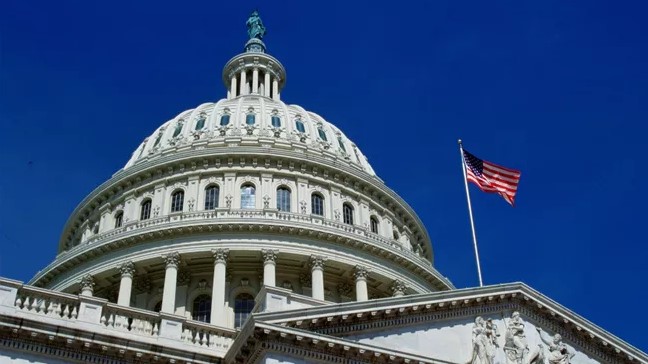A new bill proposed in Congress on Wednesday (July 27) seeks to bar rap lyrics from being used as criminal evidence in court, Variety reports.
Democratic Congressmen Hank Johnson and Jamaal Bowman introduced the Restoring Artistic Protection Act (RAP Act) to the U.S. House of Representatives as concern rises over lyrics being used against artists in criminal cases.
The first-of-its-kind bill aims to change the Federal Rules of Evidence laws by limiting the “admissibility of evidence of a defendant’s creative or artistic expression against such defendant in a criminal proceeding, and for other purposes.”
“Rap, Hip Hop, and every lyrical musical piece is a beautiful form of art and expression that must be protected,” Bowman said in a statement announcing the bill. “Our judicial system disparately criminalizes Black and brown lives, including Black and brown creativity.”
“Evidence shows when juries believe lyrics to be rap lyrics, there’s a tendency to presume it’s a confession, whereas lyrics for other genres of music are understood to be art, not factual reporting,” he added.
“This act would ensure that our evidentiary standards protect the First Amendment right to freedom of expression. We cannot imprison our talented artists for expressing their experiences nor will we let their creativity be suppressed.”
Various music entities including the Recording Academy, the Recording Industry Association of America (RIAA), and Warner Music Group have voiced their support of the RAP Act, which comes on the heels of the “Rap Music on Trial” bill passing in the New York State Senate earlier this year.
The bill’s introduction in Congress also follows the arrests and imprisonments of Young Thug and Gunna on charges of gang activity and conspiring to violate the Racketeer Influenced and Corrupt Organizations Act (RICO).
Nine Young Thug songs were used against the rapper to connect him to the alleged crimes.
Prosecutors claimed that lyrics like, “It’s all mob business, we know to kill the biggest cats of all kittens” are “an overt act in furtherance of the conspiracy.”
“My art is not allowed to stand alone as entertainment, I’m not allowed that freedom as a Black Man in America,” Gunna wrote from jail last month. “For now, I don’t have my freedom. But I am innocent. I am being falsely accused and will never stop fighting to clear my name!”
Get the latest news 24/7 on The Black Information Network. Listen now on the iHeartRadio app or click HERE to tune in live.




